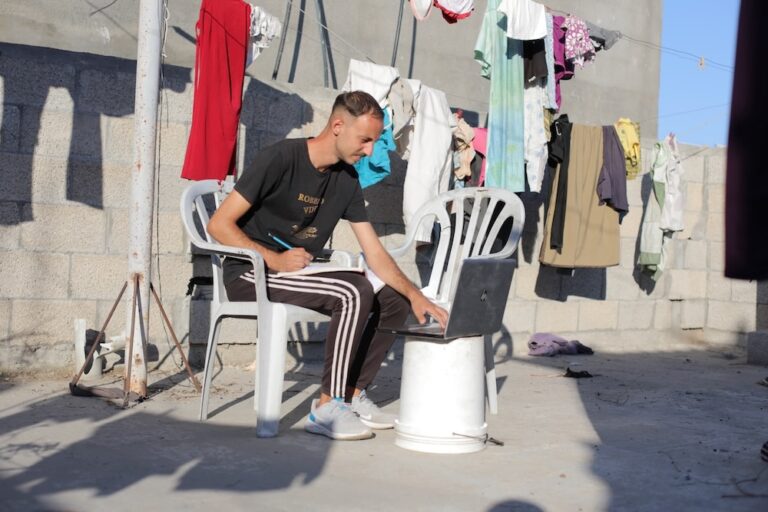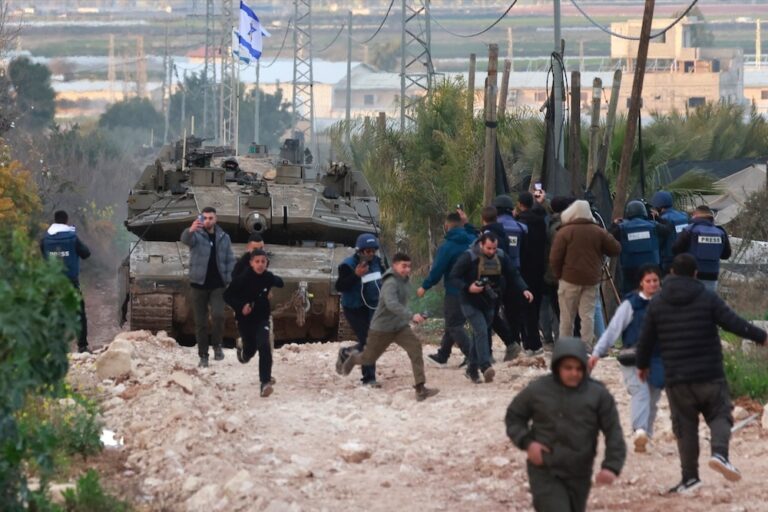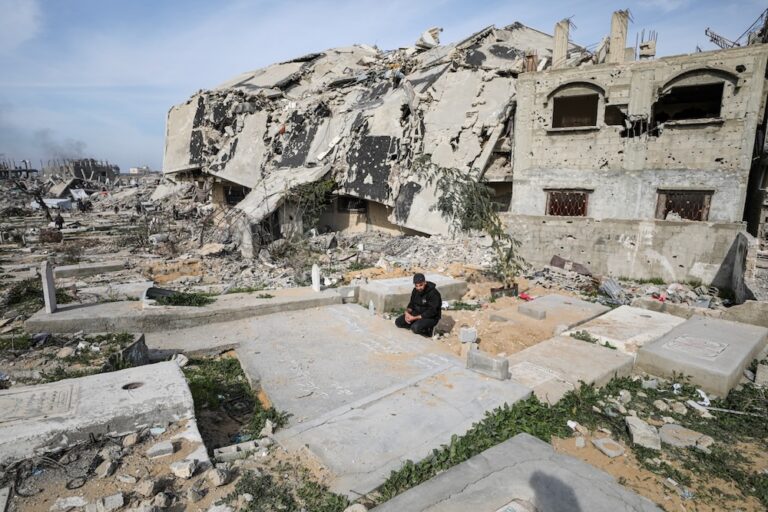(IFJ/IFEX) – The following is a 16 July 2002 IFJ media release: Mission Urges Joint Palestine-Israeli Action To Break Deadlock Over Press Cards A delegation of journalists’ leaders that visited Palestine and Israel last month is calling for a joint Palestinian-Israeli initiative to break the impasse over issuing press cards to journalists in the region. […]
(IFJ/IFEX) – The following is a 16 July 2002 IFJ media release:
Mission Urges Joint Palestine-Israeli Action To Break Deadlock Over Press Cards
A delegation of journalists’ leaders that visited Palestine and Israel last month is calling for a joint Palestinian-Israeli initiative to break the impasse over issuing press cards to journalists in the region. The delegation of the International Federation of Journalists, which visited the region from June 16-20, has condemned a decision by Israel to ban Palestinian journalists from receiving press cards issued by the Government Press Office in Jerusalem as “humiliating and vindictive.”
In its report issued today, the mission members say they are not convinced that security concerns justify the Israeli policy “which we see as humiliating and vindictive and amounts to collective punishment of all Palestinians working for local and foreign media.”
The Israelis say that Palestinian media are inciting people to violence, but its blanket ban covers all journalists, even those working for foreign media. The IFJ mission suggests that as part of the peace process, discussions should be held to establish a joint Israeli-Palestinian body of media professionals and representatives of the two authorities, which will be able to issue accreditation to all journalists wishing to work in the region.
The mission says Palestinian journalists are being targeted and they are afraid to identify themselves as journalists at Israeli checkpoints.
The mission says that urgent actions are needed to protect Palestinian journalists, many of whom are being subject to administrative detention. The mission distributed some flak jackets to camera staff and photographers, but says that much more needs to be done.
The mission members – including journalists’ leaders from Italy, Great Britain, Greece and France – met with Israeli officials and Palestinian leader Yasser Arafat and called on the Palestinian leader to make a clear statement in favour of professional and impartial journalism to help Palestinian media staff who feel themselves under pressure from both sides in the conflict.
The mission took place as the conflict sharply deteriorated and members saw for themselves the tension and potential for violence at checkpoints between Israel and Palestinian territory. The mission is recommending that more international action is needed to help journalists break out of the deadlock which has left them stranded in a twilight world of press freedom, condemned by one side as “potential terrorists and a security risk” and subject to increasing pressure from the political scene on the other.
The mission says actions are needed to improve safety and working conditions and to promote dialogue between Israeli, Palestinian, Arab world and European journalists in order to reinforce professional values in the conflict.
The IFJ represents more than 500,000 journalists in more than 100 countries


